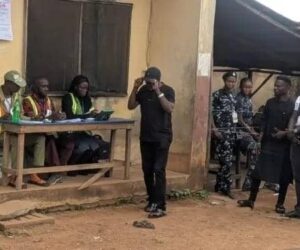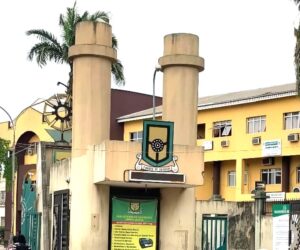The federal government has been advised to establish a legal framework that would enable Nigeria to channel the billions of dollars received annually as diaspora remittances into funding critical sectors such as electricity, road construction, health, education, and housing.
The recommendation was made by Prof. Olawale Iskil Lawal, a professor of Migration, Refugee, and Diaspora Studies at Lagos State University (LASU), while delivering the university’s 110th inaugural lecture titled “The Triage of Human Migrations in Nigeria” at the Buba Marwa Auditorium, Ojo campus.
Citing the latest World Bank statistics, Lawal noted that Nigeria ranked second only to Egypt in Africa for diaspora remittances. According to the Central Bank of Nigeria, inflows reached $22 billion in 2024, a sharp rise from $5.66 billion in 2010.
He proposed the creation of a Diaspora Remittance for Electricity, Roads, Health, Education, and Housing (DR-ERHEH) scheme, which would raise diaspora bonds targeted specifically at national development projects.
“It is my strong view that Nigeria has the capability to harness diaspora remittances to tackle her developmental and infrastructural challenges in electricity, road construction, health, education, and housing,” Lawal said.
Read Also: Plan to unseat Tinubu is national consensus, not northern agenda – Tambuwal
The professor criticised the current power sector reforms, noting that despite the issuance of licences to private investors, Nigeria still struggles to generate about 4,000 megawatts, only a third of its estimated 13,000MW requirement. Many industries and even religious institutions, he observed, now operate independent power plants to meet their needs.
Lawal urged the federal government to set up a specialised agency dedicated to managing diaspora funds, with the Nigerians in Diaspora Commission (NiDCOM) serving only as a coordinating platform, not as an executing body. He stressed that the scheme must operate in an atmosphere of neutrality and impartiality, free from the bureaucracy of ministries and government agencies.
To ensure effective implementation, he recommended that government target skilled Nigerian migrants in countries such as the United States, United Kingdom, Saudi Arabia, Germany, Italy, Spain, and Canada as potential remitters.
He further called for improved data collection on remittances, suggesting stronger collaboration with agencies including the Nigeria Immigration Service, Ministry of Foreign Affairs, National Bureau of Statistics, National Population Commission, and the Nigerian National Volunteer Service.
Highlighting lessons from other African countries, Lawal pointed out that Ethiopia issued a Millennium Corporate Bond in 2008, backed by its central bank, to fund electricity projects through diaspora remittances. Similarly, Ghana created specialised funds from remittances between 2013 and 2017 to finance infrastructure in roads, health, and education.
He concluded that Nigeria must move beyond the current informal model, where diaspora funds are mainly used for family support, to a structured system that channels part of the inflows into transformative national projects.









